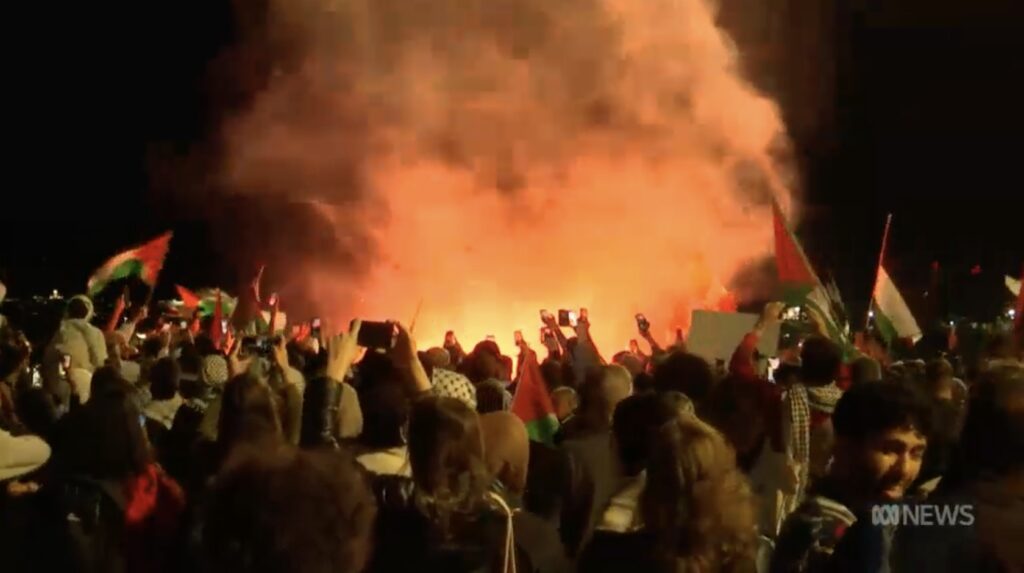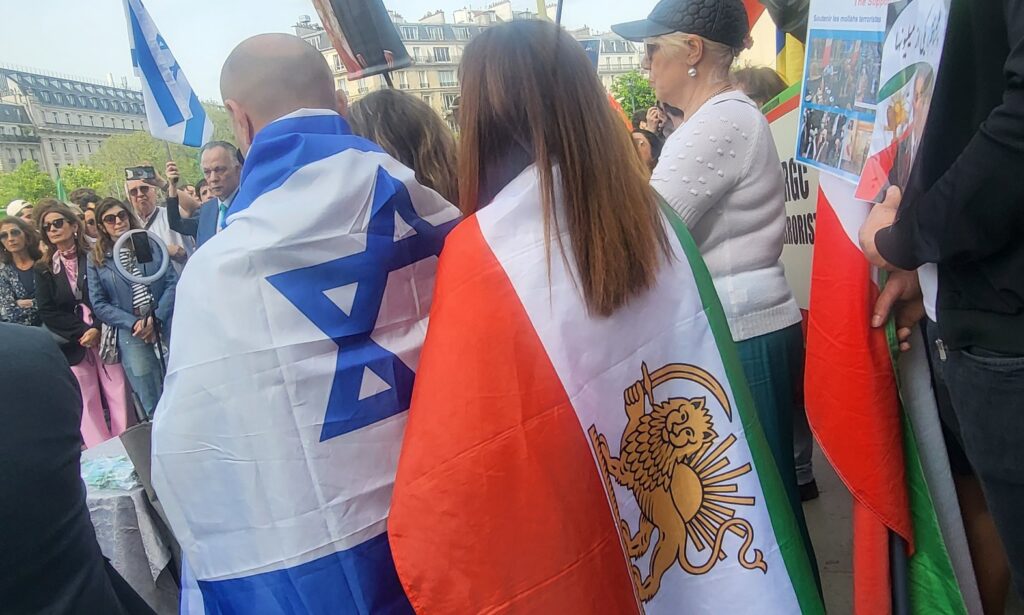UPDATES
“How dare you talk to one another!” The ‘Anti-Normalisation’ campaign continues to obstruct reconciliation in the Middle East
May 19, 2014 | Glen Falkenstein

What if someone told you that Israelis and Palestinians weren’t fighting each other, but were fighting together, for peace and reconciliation. There are NGOs and individuals based in Israel and the Palestinian territories doing just that; working together to promote dialogue, co-operation and ultimately peaceful co-existence.
The Middle East NGO ‘Combatants for Peace,’ set up by both Israelis and Palestinians, organised a joint Memorial Day ceremony on May 3 dedicated to all victims of conflict, where bereaved Israeli and Palestinian families spoke about their personal pain. The organisers described their intentions thus; “On this particularly difficult day we call for both sides to acknowledge the pain and the aspirations of those living on the other side of the fence and to strive to prevent the next war.”
However, as detailed in previous AIJAC research by Sharyn Mittelman, many Palestinian activists devote considerable energy into opposing any “normalisation” of relations between Israelis and Palestinians. The ‘Anti-Normalisation’ movement demands Palestinian organisations and activists refrain from any co-operation or cultural, political, or social interaction with Israelis. Thus, any dialogue about peace, shared feelings of bereavement, or exchange of perspectives on how the conflict can be solved, is anathema to the movement.
Furthermore, these efforts are supported by important elements of the Palestinian Authority.
Thus, not only have Palestinian peace activists come under fire for attending the Memorial Day ceremony; the attack on the activists was done with tacit support from the PA leadership, which last year formally disbanded the Palestinian branch of Combatants for Peace, as noted Palestinian affairs correspondent Khaled Abu Toameh recently reported.
The PA Interior Minister officially disbanded the Palestinian part of the movement in 2013, claiming it was promoting normalisation of relations with Israel. Perhaps encouraged by this official license, Palestinian activists smeared and threatened the Palestinian coordinator of Combatants For Peace, Yussre Slameen, for attending the recent ceremony in Tel Aviv.
As Abu Toameh reported:
Comments published in the Palestinian daily Al-Quds have accused Slameen of being a “traitor” and an “advocate of normalization with the occupation.”
One reader denounced the peace activist as “trash,” while another described him as being “morally and nationally corrupt.”
Another reader, Samar Shyoukhi, saluted those Palestinians who refused to take part in an event honoring Israeli victims. She urged the Palestinian Authority security forces to severely punish Slameen and his friends. Others called on the PA to fire Slameen from his job at the Ministry of Social Welfare.
As Sharyn Mittelman’s post last year made clear, this is nothing new, but part of a long-standing pattern of Palestinian anti-normalisation activists using intimidation and abuse to attempt to prevent any Israeli-Palestinian dialogue. There have also been other examples since her post was published.
In January Israeli and Palestinian activists from the group “Minds of Peace” organised a two day peace conference in Ramallah, but were forced to cancel it after local activists attacked the hotel where the conference was taking place, throwing stones, breaking windows and attempting to storm the building. The protestors hung a poster at the hotel entrance declaring that normalisation of relations with Israel is treason. When the organisers later tried again to hold their conference at a different venue in East Jerusalem, anti-normalisation protestors again sought to stop their dialogue.
In April, activists exhibiting the same vitriol tried to prevent a group of Indian dancers from performing at a book fair in Ramallah, claiming the group’s previous appearance in Tel Aviv amounted to promoting normalisation of ties with Israel. These activists abused the dancers, while some even accused Palestinian Authority President Abbas of being a traitor for engaging in peace talks. The PA had originally opposed the dancers coming to Ramallah, citing the normalisation of relations with Israel, but relented following assurances from Indian diplomats that the Tel Aviv performance had not been coordinated with any Israeli body, officially or otherwise, and had only been for Indian nationals living In Israel.
Just weeks ago Professor Mohammed Dajani was expelled from the Al-Quds university workers union after he led the first group of Palestinian students to visit Auschwitz. The union said this action was taken against Professor Dajani in response to ” behaviour that contravenes the policies and norms [of the university]”, with leaders at the university specifically accusing Dajani of having violated the academic and cultural boycott of Israel.
Interestingly, Dajani said that the whole, very public expulsion – taken without allowing him to defend himself – was phony, as he had never been a member of the union in the first place. Earlier, Dajani had been labelled a traitor to Palestinians by critics and his own university disowned his efforts.
Zeina Barakat, a student who visited the death-camp with Prof. Dejani, eloquently detailed the significance of the visit and the reaction upon her return.
“As an educator, Professor Dajani’s purpose in having his students learn about the Holocaust is to broaden their understanding of the psyche of ‘the other’…only then can you truly understand how that person feels and why…when we Palestinians returned from the unprecedented visit, a voyage that broke historic barriers of ignorance and misunderstanding, we were welcomed not with thanks and congratulations but with an explosion of criticism. Professor Dajani was the target of an especially vicious attack by extreme Palestinian nationalists who accused him of selling out.”
The Professor and his students seem to have had a valuable opportunity to learn about intolerance and the importance of the free exchange of ideas, as well as about the Holocaust and genocide, as a result of their trip.
These are lessons that it is vital that more people advocating anti-normalisation learn – especially those in the Palestinian Authority who are supporting the anti-normalisation efforts.
Regardless of what happens, the Israeli and Palestinian peoples are destined to share the territory between the Jordan River and the Mediterranean. And what hope is there for any form of genuine long-term reconciliation and co-existence between these two peoples if dialogue, exchanging views, or trying to understand the other sides’ perspective continues to be regarded as tantamount to treason by those who further anti-normalisation?
Glen Falkenstein
Tags: Anti-Zionism











